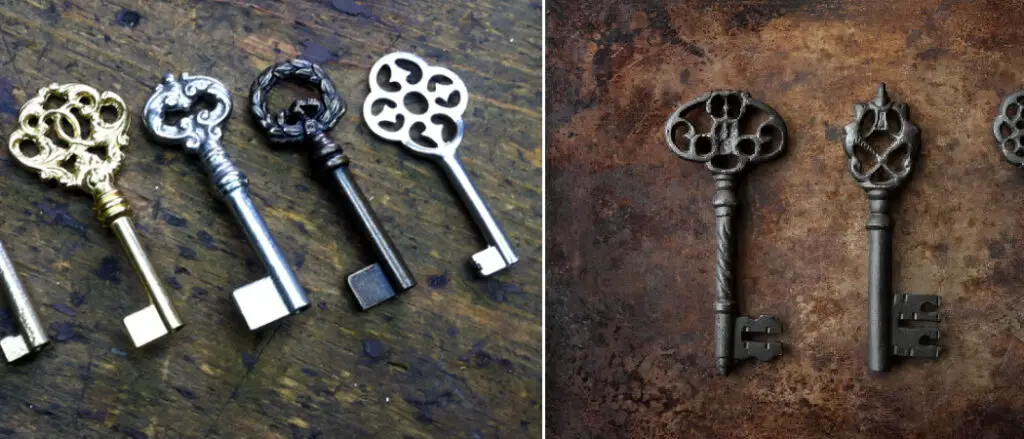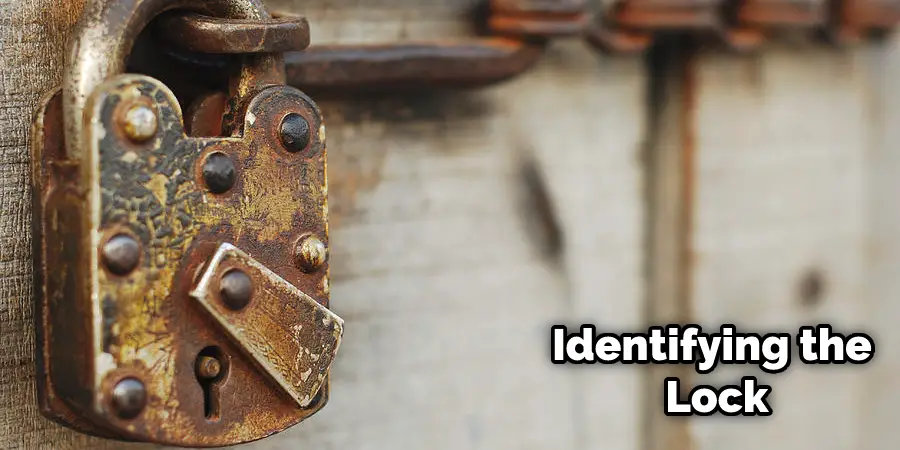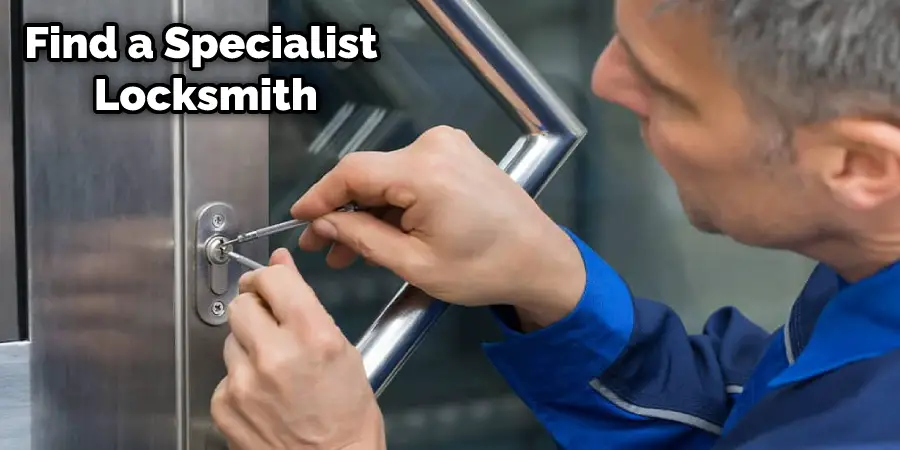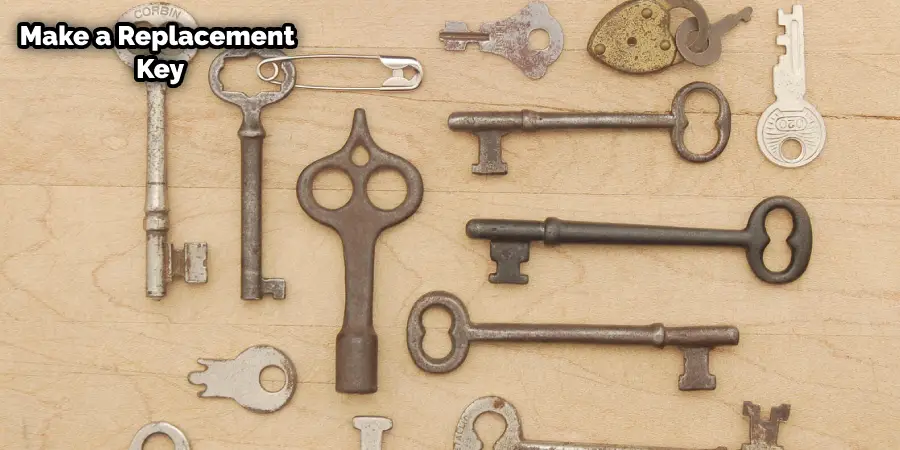If you find yourself in need of a replacement skeleton key for an old lock, it can seem like a daunting task to locate the right one. You may have questions such as: Does the size of the key matter?

Is manufacturing or brand important? How do I know which type of skeleton key my lock requires? Thankfully, there are resources available to help guide you through this process.
In this blog post, we’ll take a comprehensive look into how to identify and then track down exactly the right replacement skeleton key that fits your old locks – no matter what its style or age! So keep on reading to learn more about the matter of how to find replacement skeleton keys for old locks.
Identifying the Lock
Identifying the lock is a crucial step in finding a replacement skeleton key for an old lock. Here are some tips for identifying the type of lock you have:
- Look for identifying markings: Many locks will have a manufacturer’s name or logo stamped on the lock body or keyhole. This can help you identify the make and model of the lock, which can make it easier to find a replacement key.
- Check the keyhole shape: Different types of locks will have different keyhole shapes. For example, a skeleton key for a mortise lock will have a rectangular blade with a small hole at the end, while a skeleton key for a warded lock will have a long, thin blade with notches cut out of it. By examining the keyhole shape, you can narrow down the type of lock you have and find a compatible replacement key.
- Examine the lock mechanism: If you are able to remove the lock from its mounting, you can examine the lock mechanism itself. Look for any identifying markings or features that might help you identify the lock type. You can also compare the mechanism to reference images or descriptions of different types of locks to help you identify them.
- Seek professional help: If you’re having trouble identifying the lock type, or if you’re not sure if a replacement key will be compatible, it’s best to seek the help of a professional locksmith. They will have the expertise and tools needed to identify the lock type and find a compatible replacement key.

8 Step-By-Step Guides on How to Find Replacement Skeleton Keys for Old Locks
Once you have identified the lock type, it’s time to search for a replacement key. Here are some tips for doing so:
Step 1: Check with The Manufacturer:
If you know the make and model of your lock, you can contact the manufacturer directly to see if they offer replacement keys. This is usually the most reliable option, as the manufacturer will be able to confirm compatibility and provide an exact match for your lock.
Step 2: Search Online Auctions and Marketplace Sites:
There are many websites that specialize in selling replacement keys for old locks. Searching these websites can help you locate a compatible key at a reasonable price. Be sure to read customer reviews before making a purchase, as some sellers may offer keys that are not compatible with your lock.
Step 3: Talk to Local Antique Dealers or Collectors:
If you have an antique or unique lock, antique dealers and collectors may be able to source a key for you. These people often have collections of old keys that may fit your lock, or they may be able to point you in the direction of a compatible replacement.
Step 4: Find a Specialist Locksmith:
If all else fails, you can always seek out a specialist locksmith. These professionals will have access to tools and resources that can help them track down an exact replacement for your lock. This may cost more than other options, but it will likely be the most reliable way to find a compatible key.

Step 5: Look in Salvage Yards:
Salvage yards are great places to search for old locks and keys. As long as you take care not to damage anything, you should be able to find compatible keys at a fraction of the cost of buying them new.
Step 6: Check With Local Curio Shops and Markets:
Local curio shops and markets may have old locks or keys that are compatible with your lock. It’s always worth asking around in these places as you never know what you might find.
Step 7: Talk to People in Your Community:
Your friends, family, and neighbors may have old locks or keys that are compatible with yours. It’s never to ask around!
Step 8: Search Online Forums and Communities:
Finally, you can search online forums and communities for advice on finding a compatible key for your lock. You may be able to find someone who has successfully located a replacement or has advice on how to proceed in your search. Good luck!
By following these tips, you should be able to find a compatible skeleton key for your old lock. It’s always best to check with the manufacturer first, as they will be able to provide the most reliable and accurate information.
However, if you’re unable to contact them, there are plenty of other ways to find a replacement key for your lock. With a bit of patience and some luck, you should be able to locate the perfect skeleton key!
Troubleshooting Common IssuesWith Replacement Skeleton Keys
If you have problems with your replacement key, here are a few troubleshooting tips:
- Check to make sure that the grooves in the key fit the grooves in the lock. If they don’t, you may need to find a new key.
- Make sure that the key is lubricated before you try to insert it into the lock. If it sticks, you may need to use a lubricant or contact a locksmith for help.
- Ensure that the grooves of both the key and the lock are free of debris or dirt. If either one is blocked, your key may not fit properly.
- Make sure that all the pins are lined up in the correct order before you try to insert the key. If they aren’t, you may need to adjust them or contact a locksmith for help.
- Check to see if your replacement key is an exact match for your lock. If it isn’t, it may not fit correctly.
Following these troubleshooting tips should help you get your replacement skeleton key working properly. If you still have problems, contact a locksmith for assistance. Good luck!
Making a Replacement Key
If you’re unable to find a replacement skeleton key for your old lock, you may be able to make a new key yourself. Here are some tips and steps to follow:

Tools and Materials Needed:
- Calipers or a ruler
- A blank key (preferably a brass key blank)
- A file or grinder
- A vice or clamps
- Lubricant (such as WD-40)
- Optional: a skeleton key gauge (a tool used to measure the dimensions of the key)
Steps to Make a Replacement Skeleton Key:
- Measure the keyhole: Using calipers or a ruler, measure the dimensions of the keyhole on the lock. Record the height and width of the keyhole, as well as the distance between the edge of the keyhole and the edge of the lock.
- Select a key blank: Choose a blank key that matches the type and size of the lock. Brass key blanks are preferred for their malleability and ease of filing.
- Rough cut the key: Using a grinder or file, cut the blank key to the approximate shape of the original key. This will allow you to insert the key into the lock and test its fit.
- Test the key: Insert the rough-cut key into the lock and test its fit. If the key does not turn or is difficult to insert, use the file or grinder to make adjustments to the key.
- Refine the key: Once the key turns in the lock, use the file or grinder to refine the shape of the key. Pay attention to the shape of the key’s cuts and ensure they match the original key as closely as possible.
- Lubricate the lock: Before testing the key again, apply a lubricant (such as WD-40) to the lock to ensure smooth operation.
- Test the key: Insert the refined key into the lock and test its operation. If the key turns smoothly and unlocks the lock, you’ve successfully made a replacement skeleton key!
Note: If you’re having trouble with any of these steps, or if the lock is particularly old or complex, it may be best to consult a professional locksmith for assistance.
Conclusion
Finding replacement skeleton keys for old locks can be difficult, but with a little bit of research and effort, it is possible. The best way to locate the correct key you need is by researching your lock’s manufacturer or finding an experienced locksmith who will help you identify what type of key fits in your specific lock.
With the right information and resources, you’ll be able to find the perfect replacement skeleton key that works perfectly with your old lock. Take some time today to look into these options to get back access to whatever area was previously locked away! Thanks for reading this article about how to find replacement skeleton keys for old locks.
